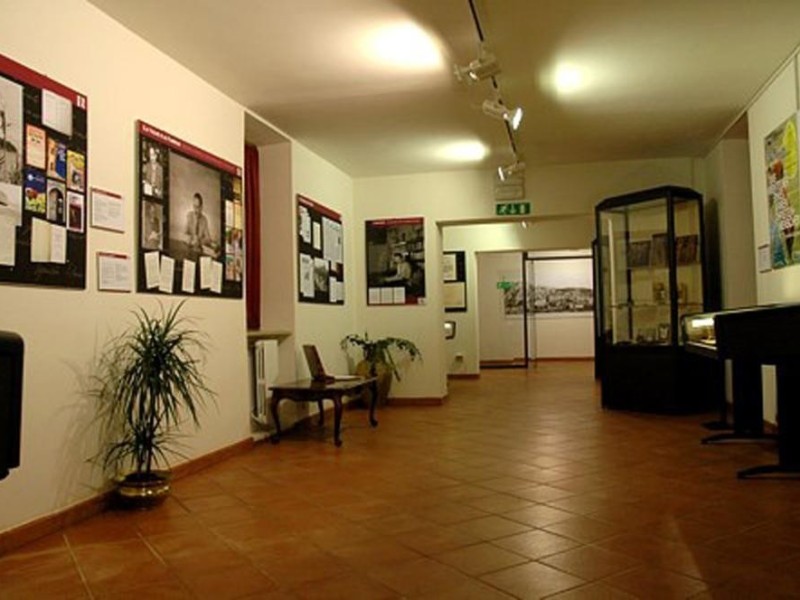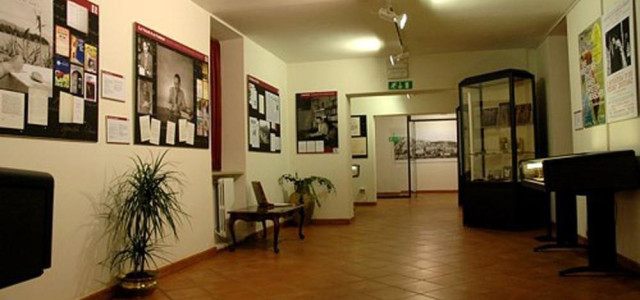Destinazioni - Comune
Pescina
Where
Pescina (L'Aquila)
Pescina (pronounced [peˈʃina]) is a township and comune in the province of L'Aquila, Abruzzo, central Italy. It is a part of the mountain community Valle del Giovenco.
Geography
Pescina borders on the communes of Celano, Collarmele, Gioia dei Marsi, Ortona dei Marsi, Ortucchio, Ovindoli, San Benedetto dei Marsi, and Trasacco.
Located in the flatland areas of the province, Pescina has a milder climate compared to other towns and cities in Abruzzo, with temperatures averaging between 2.5 °C (36.5 °F) in the colder months (such as January) to 22.9 °C (73.2 °F) in the warmer months (such as July). Rainfall is relatively heavy, averaging 820 millimetres (32.3 in) annually and occurring mostly in the late autumn. In the winter snowfall is also relatively abundant.
History
The Earthquake of 1915
The earthquake of 1915 (also known as the earthquake of Avezzano) was a dramatic seismic event occurring on 13 January 1915, which struck the entire area of Marsica, situated in the interior of Abruzzo. It was one of the most catastrophic earthquakes to occur in Italian territory, leaving 120,000 victims in Marisca and surrounding areas.
The earthquake occurred at 7:48 AM local time and attained a magnitude of 11 on the Mercalli scale, resonating about 1000 times at lesser magnitudes in successive months. The initial aftershock registered a 7 on the Mercalli scale and was felt throughout all of central Italy.
Pescina was completely leveled by the event. The victims were about 5,000 out of a total population of 6,000. The few who survived were generally badly injured and remained homeless since all of the buildings in town were destroyed. The earthquake completely isolated the area and news of the disaster was only learned of in the late afternoon. Rescuers left on the evening of the 13th, arriving only the day after because of the impassability of the roads caused by landslides and debris.
The seismic event brought to light the lack of preparedness of the Italian state. Eminio Sipari, deputy of the college of Pescina, protested that many victims probably would have been saved with proper precautions. The continuation of World War I, which had begun in autumn of 1914, brought troops to the region and secured the permanence of forces in the afflicted area.
The earthquake of 1915 created interest in the Appennini mountain chain which had not seen such disastrous earthquakes before 1915. Segments of the population which had no geological competence developed theories to explain the great earthquake, placing the blame on human activities in the area. In this case, it was the drainage of lake Fucino which was credited for causing the quake. However, such as the case with all other previous earthquakes, the great quake of 1915 was caused by the movement of and release of pent-up energy of an important tectonic fault.
Like most other areas of Italy, Pescina has a diaspora still extant in the New World. The families of Galli and Villanucci, which have had a presence in Pescina since at least 1880, have members in at least two American cities: Portland, Maine and Providence, Rhode Island.
Notable people
Cardinal Mazarin, successor of Cardinal Richelieu to the regency of France
Michele Mazzarino, Cardinal and brother of Cardinal Mazarin
Domenico Morfeo, footballer
Ignazio Silone, author
Luciano Zauri, footballer
References
This article incorporates information from the equivalent article on the Italian Wikipedia.


